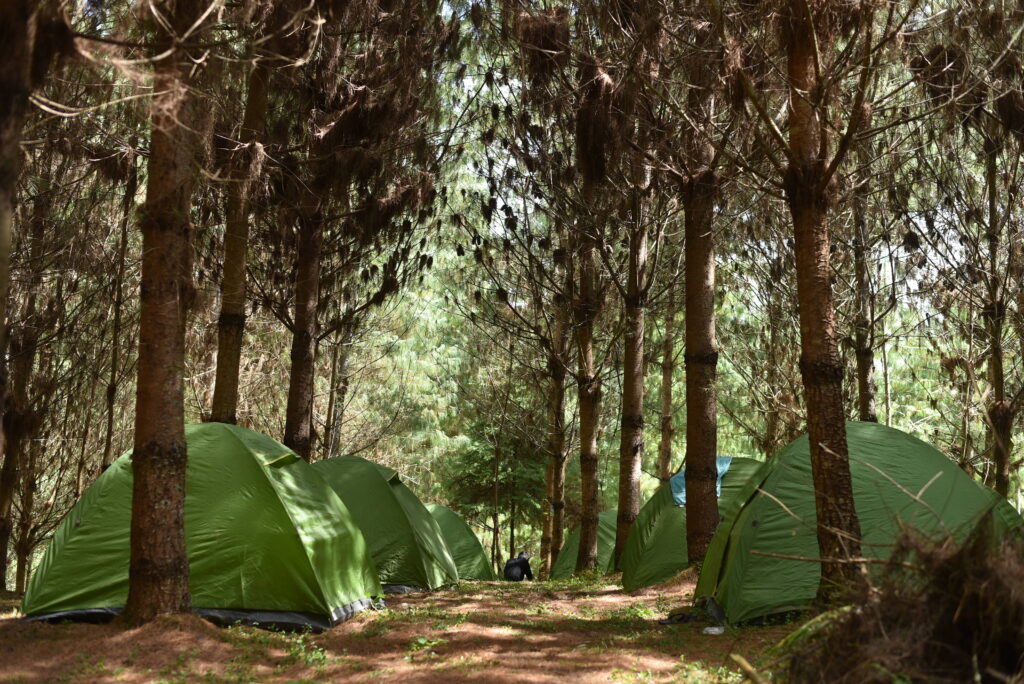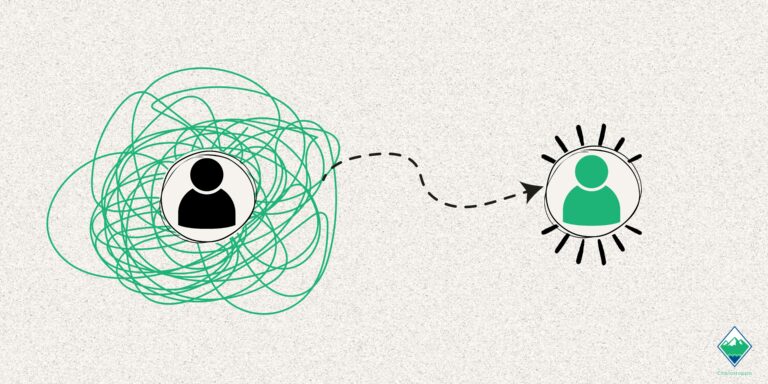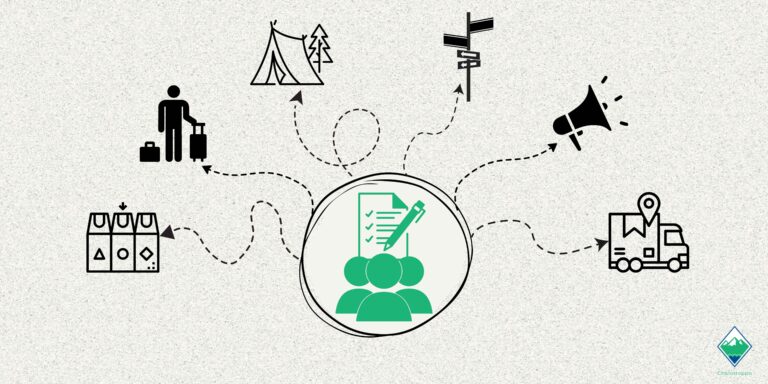7 min

PHOTOGRAPH: © CHALOHOPPO
Nestled in the mountains of Arunachal Pradesh, the valley of Ziro is a biodiverse area with a rich culture and heritage. The region in recent years has been receiving heavy tourist footfall, especially during the Ziro Music Festival held in September every year. One can visibly see the impact of this increased flow on the fabric of the valley.
As Team ChaloHoppo, we have seen this change firsthand – being one of the first companies to set up camp during the festival (since 2016). Back then, ChaloHoppo was one of three, if not four, campsites that were set up for the festival. Today, the festival sees no less than 35 to 40 campsites hosting as per estimate, at least 2,500 travellers from all over the country and the world over a span of just four days.
Our biggest goal (and challenge) was to make a difference in how travellers, and travel companies like ourselves, impacted the environment especially during short, high-impact public events.
STEP ONE : IDENTITY THE PROBLEM

As the dates for the festival were announced last year (2022), and the excitement started brewing amongst our community, we realised that if we truly wanted to be responsible in how we host large groups of guests in eco-sensitive areas like Ziro, the only way forward was to reach out to like minded people and pull together a team to work towards this common goal.
Collaboration was the key!
We partnered with two experienced local camping operators that hail from the region itself to launch our CampOne campsite in Ziro.
Campsites can generate significant amounts of waste in a short period and when left mis-managed or unmanaged can leads to soil contamination, disruption of natural habitats, which can impact biodiversity and negative impacts on tourism and local economies. When we hosted our earlier campsites, we always aimed to be responsible, and reduce our waste wherever possible. So, this was no first! We would encourage guests to avoid plastic, not litter- the usual. This time however, we wanted to do more: we wanted to measure our impact and see what it takes to go the last mile. As an experiential company born out of pure love and passion for our region and people, we wanted to do this right. We had seen, first-hand, the damages the environment has had to bear at the onset of too many visitors to its fold, especially with little to no planning.
For readers new to ecological terminologies (there is no shame, we learn every day!), let’s dive head straight into this:
What is a Zero-Waste event? Is it truly possible?
A zero-waste event is an event where the majority of the waste generated is either reused, recycled, or composted – upto the optimal levels that can be reached realistically. (In our case, this was 96% : please take a look at our publicly accessible CampOne Audit Report for details)
Every time we travel, we leave a footprint on the environment, the local communities, and the economy – both at an individual and collective level – and we are responsible for this ecological footprint. As such, achieving a zero-waste event is a challenging goal, but it’s our responsibility to attempt it with all sincerity.
As a travel company, we initially didn’t (or in fact, couldn’t) imagine the campsite could be a completely waste-free environment, but rather a place where waste will be minimized as much as possible. As such, the idea of zero waste was something we saw as a goal to strive for, rather than a fixed standard that is impossible to achieve.
With growing global concerns about the environment and ecological footprint of visitors, greenwashing has become the norm with misleading claims made by companies being ‘eco-friendly’ or ‘zero-waste.’ As such, we were extremely apprehensive about using such terms in our communications until we were sure we could commit to such a huge promise – to our guests, to the land of Ziro, and to ourselves.
What is Green Washing?
Greenwashing is the practice of making false or exaggerated claims about the environmental benefits of a product or service in order to appeal to environmentally-conscious consumers. Unfortunately the eco-travel industry also takes on illusive advertising that deflect from actual on-ground practices of taking on this huge responsibility.
It involves using deceptive marketing tactics to create the impression that a company or product is more environmentally beneficial than it actually is.
Signs of greenwashing include:
- use of vague or ambiguous language like eco-friendly
- lack of transparency about sustainability practices or policies
- a lack of measurable evidence of action to back up environmental claims
As we began promoting for CampOne, we quickly realised, thanks to our beloved community, we were going to be hosting the largest campsite in the region.
With a guest-list of over 220 guests staying at our Ziro campsite (and 30+ team members), this was a unique challenge of its own for our small team and we had to ensure that we were fully equipped to handle the operational realities of our environmental impact. For the first time, we went ahead to consciously allot a budget (albeit, little) towards integrated waste management.
STEP TWO : PASSION TO ACTION - IT IS TIME!
To successfully manage waste at CampOne, it was crucial that every team member was on the same page and working towards the same goal. Waste management during events require two things: a collective mindset with internal alignment across all our operations and a designated team looking after its on-ground execution.
We started our internal alignment with the desired outcome to develop a Responsibility Policy for CampOne – our first small win. As a team working remotely, we spent at least 4 to 6 meetings discussing every clause put into the first draft. We asked ourselves questions like: Is this feasible? Is this realistic? Can we afford it? How can we help guests to plan ahead and pack consciously? How can we follow this up in our communications?
One thing we knew was that to make this policy work, a well-planned communication strategy was essential to make the slightest difference. Guests would have to be nudged toward responsible travel through all channels of communication and at every step of their experience – from the point of registration to packing, when traveling, checking in, and during the event. We understood that this is a behavioural change. It was crucial to make the actions easy for the guests to adopt, and we committed to making it happen.

STEP THREE : BRING IN THE EXPERTS → ACHIEVE HIGHER GOALS
With a responsibility policy in place to guide us, it became evident that we required professional assistance and guidance to take our intentions forward. That’s when we turned to Eureka Khong, a friend and architect who has championed the cause of waste management in all her initiatives, including setting up systems at institutions and construction sites.
“What got me to say yes to this collaboration was the team’s refusal to use terms like “eco-friendly” and hesitance to prematurely call the campsite zero-waste. This demonstrated a level of integrity and a commitment to learning and growth that resonated with me.” – Eureka
She brought in Utsow Pradhan, who has a real talent for systems and design thinking, Ittisha Sarah, who had ample on-ground experience with event waste, and Shirshendu Sekhar Das, who had additional unique insights as the only dry-waste aggregator in the region. Together, they formed a team that was passionate, experienced, and determined to bring about a shift in event waste-management practice in the region.
“While ChaloHoppo team had more modest plans, we all knew that adopting a zero-waste framework was the only way the four of us knew how to manage waste!” – Eureka Khong
To know more about our passionate Zero-Waste professionals, check out: TiEEDi, Northeast Waste Collective, The Midway Journey and Aspiration Zero. Interestingly, this unique opportunity to bring together passionate professionals to collaborate and create added value to the zero-waste ecosystem was the genesis of Aspiration Zero!
A series of discussion ensued:
- What are the most common types of waste generated at the campsite?
- What are the optimum categories of waste segregation from the point of both, guest engagement and types of waste that aggregators collect locally?
- What are some innovative waste reduction strategies that can be implemented at the campsite?
- How can we involve our campers and guests in our waste management plan in a fun and engaging way?
- How can we measure the success of our zero-waste program and track progress towards our goals?

What next?
What followed is more than what can be put into one blog. What we can tell you is that it was a journey of a lifetime, with more learning and results than we could have ever imagined. Was it the first of its kind event that the region has ever seen? Was it successful? How much did our event, which was the largest campsite during the Ziro Festival of Music in 2022, impact the environment when it comes to the waste generated?
Find out in our blog “How 250+ Campers came together for a one-of-a-kind Zero Waste Event” , an article that takes you through our journey to achieving one of our biggest wins ever.
Special thanks to Eureka Khong for her help and support in putting this article together.

